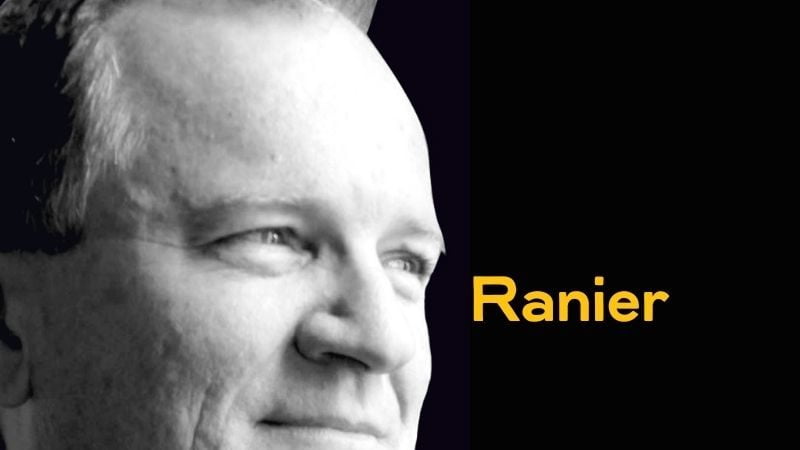The other day, as I was listening to the rallying cry to join Team Malta, I decided my patriotism needed some dusting. Perhaps I had spent too much time among books, carping critics and quasi-traitors. I needed to go back to basics, forget philosophy, and listen to men of action with unimpeachable patriotic credentials: men like Abraham Lincoln, Theodore Roosevelt and Martin Luther King Jr.
It turns out that the arguments we’re having in Malta, about what true patriotism is, have long been taking place, often for the same reasons.
Roosevelt is one of those four faces on Mount Rushmore, and famous for advising political leaders to “talk softly and carry a big stick”. Let’s just say he wasn’t a shrinking violet or against major infrastructural projects or against America asserting itself. However, this is Roosevelt on what patriotism means:
“Here is your country. Cherish these natural wonders, cherish the natural resources, cherish the history and romance as a sacred heritage, for your children and your children’s children. Do not let selfish men or greedy interests skin your country of its beauty, its riches or its romance.”
For the 26th US President, the people who need to defend their patriotism aren’t the ones insisting on the safeguarding of national cultural heritage or zones of ecological importance. Destroying those carelessly is like destroying a family home carelessly. Which, come to think of it, is just about where we are.
For Roosevelt, the people who need to explain themselves are those for whom the landscape and culture are there only to be used the way visiting film directors do: shots from here and there, composed into an imaginary narrative.
Which, come to think of it, is just how our country’s wonders tend to feature in official patriotic discourse: as scenic images, intended to fill the soul with pride, just before a solemn address to the nation.
The argument behind the Team Malta slogan is explicit. Government policy is to be endorsed as though there’s no real distinction between government and country. It’s hardly a new argument. Mark Twain (1835-1910) found he had to insist: “Loyalty to country always. Loyalty to government, when it deserves it.”
The argument keeps needing to be remade because patriotism, like democracy, needs continual defence. There’s no doubting, though, that the entire tradition of western democracy is on the side of Twain.
Another novelist, the Nobel Laureate Albert Camus (1913-1960), wrote that he wished he could love France and still love justice. He was raised in Algeria when it was annexed to France, and wanted to see a truly multiethnic Algeria free of racism. He was excoriated by some of his countrymen, but who do we think, today, was the real patriot?
Camus was echoing Clarence Darrow, famously the defence lawyer in the Scopes Trial a century ago, who asserted: “True patriotism hates injustice in its own land more than anywhere else.”
In other words, it’s not the justice activists who need to explain themselves. Rather, it’s those people who cannot bring themselves to condemn, or even name, plain injustice.
Perhaps we need a litmus test. Let’s doorstep Cabinet ministers and ask if they’re prepared to endorse these words by the new US President, Joe Biden: “Fighting corruption is not just good governance. It’s self-defence. It’s patriotism”.
An old theme in the Western tradition is that patriotism is about being a good citizen. Aristotle insisted that it’s not the same as being a good person. Good citizenship means coming out of your private shell and committing to the public interest.
Aristotle didn’t mean, of course, that good citizenship didn’t have anything to do with character. He’d have been at one with Abraham Lincoln, who knew his classics, and who said:
“I like to see a man proud of the place in which he lives. I like to see a man live so that his place will be proud of him.”
That long arc of concern with moral character, for civic reasons, can also be found in the most famous of Lincoln’s heirs, Martin Luther King, who dreamt of a nation where: “Your children will not be judged by their religion, they will not be judged by the colour of their skin, they will not be judged by their name, no matter what it sounds like. They will be judged by the content of their character.”
Let’s try to return the discourse of patriotism to where it belongs: to the realm of civic morality and public goods. The alternative — of blurring patriotism with fealty to the government — isn’t love of country. It’s worship of power, with our children judged, and their life chances decided, by whether they adhere to the cult.













Excellent article which has spurred me to re-watch the excellent film ‘The Lives Of Others’ just as a reminder as to where the cult of power leads.
A well crafted article, well timed and welcome. However are the Maltese, too blind to see and too deaf to hear? or just too fearful to challenge? The Barbarians are no longer at the gate, they are inside the walls pillaging, destroying and feasting on all that was beautiful about these precious islands. Where can Malta find true leaders and defenders at this troubling, dangerous and challenging time? God Save Malta, because the politicians and gangesters won’t.
Another joy to read, but written by Fsadni. How many Fsadni’s do we have among the elected to govern? I doubt if there is even one. Philistines? The whole lot.
ties in with the idea I have; that a politician should be a writer first so that we can gauge his/her moral content better
Thanks for sharing with us your wisdom. Please get more involved in ‘the streets’ where you can encounter people who never read these articles but who are in much need of knowing the objective truth.
we need a speaker’s corner
Excellent. Well argued.